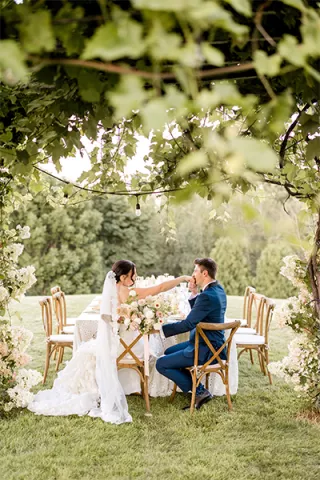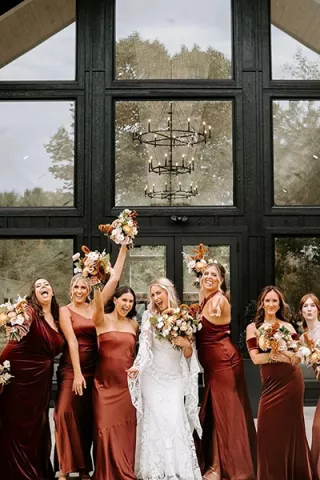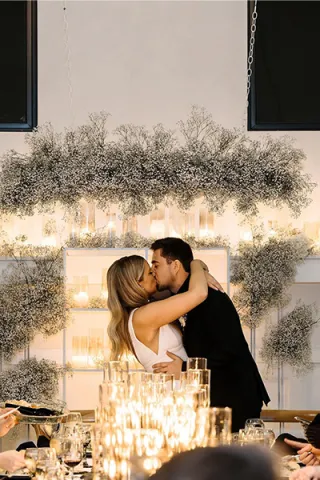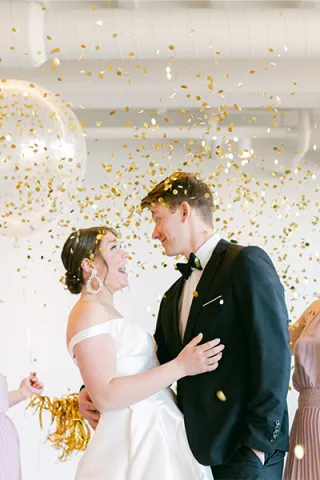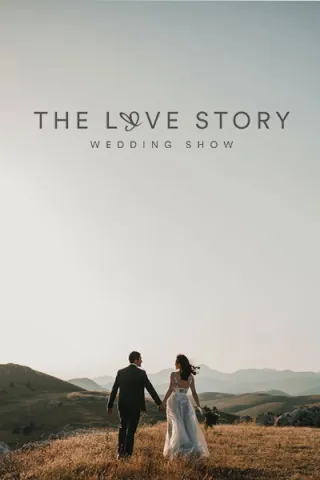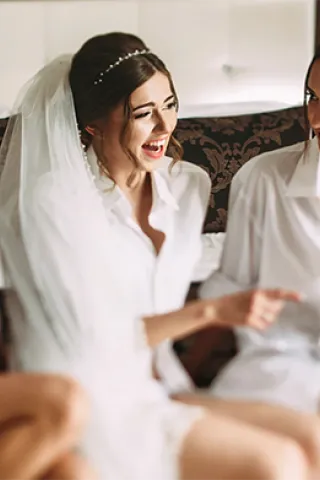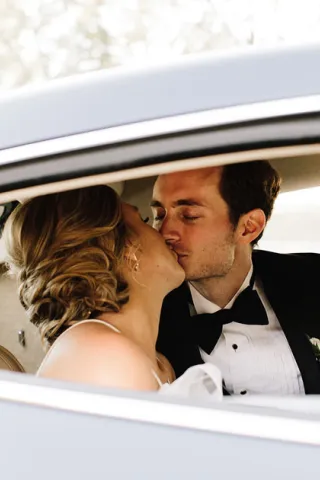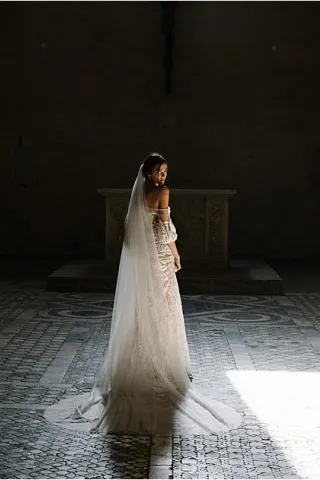Declaration of intent vs vows
Before you start writing, it’s important to understand the difference between a vow and a Declaration of Intent, both important parts of a wedding ceremony. When a couple agrees to marry each other by their own free will, that section of the ceremony is called the Declaration of Intent. The language specifically focuses on what you “will” and not on what you “do.” It is meant to remind the couple that their “will” is key to their relationship. This is what the witnesses (maid of honor and best man) are listening for and agreeing to when they sign the marriage license, says Starr. The vows, which typically come next in a wedding ceremony, are promises the couple makes to one another to live out during their marriage.
Going with tradition
Some ceremony locations, like the Basilica of Saint Mary in Minneapolis, require that couples use vows approved by the Catholic Church, says Nancy Keller, wedding coordinator for the Basilica.
At Beth Jacob Congregation in Mendota Heights, Rabbi Morris Allen explains that in Jewish wedding ceremonies, couples sign a ketubah, or written wedding contract. Nowadays, he says, some couples choose to include their own vows about their shared responsibility in their ketubah. They can also speak their own vows during the ceremony if they choose. Since vow limitations differ so widely, it’s best to check with your officiant before starting to write your own.
The writing process
As you begin to write, consider your vows as the vision and mission statement for your life, advises Paul Gauche, pastor of adult ministries at Prince of Peace Church in Burnsville. He recommends coming up with a list of three to four non-negotiables in the relationship, then using those ideas as the building blocks for your vows. “For a couple who’s committed to being honest with each other, they can say, ‘I will strive to be honest with you,’ ” says Gauche. “It’s important to remember that your vows ought to come out of your core values.”
It can also be helpful to read through a sampling of pre-written vows; any Internet search engine will turn up a multitude of possibilities. You can also ask your officiant to provide sample vows that recent couples have written. Dr. Ron Sykes, senior pastor of Cornerstone Church in Blaine, says that many of his couples begin by scanning through the traditional vows and their contemporary counterparts he has on file. “I really like the old-fashioned ‘In sickness and in health, till death do us part’ lines,” he says, “but I also enjoy more modern vows, like ‘To laugh with you when you’re happy, to lift you up when you’re sad.’ ”
Tim Rauk, pastor of Wooddale Lutheran Church in St. Louis Park, asks his couples to delve a bit deeper when writing their own vows. “I encourage them to include concepts of commitment and love for one another—the commitment to embrace one another in good times and in bad, because we all know that marriages aren’t always perfect.” Because he performs Christian ceremonies, Rauk also encourages some kind of spiritual acknowledgment. While the vows don’t have to be religious per se, he says that 60 to 70 percent of his couples are comfortable including something of a transcendent nature, but, he adds, “Don’t say something you don’t mean.”
Following the law
A few key words must be included for the legal aspect of a marriage, according to Washington County District Court Judge Tom Armstrong. For a marriage to be legal, you must include words that convey to the guests that you want to be married to each other, he says.“ ‘I want to spend the rest of my life with you,’ is great,” he says, “but more is needed. You need to say, ‘I want to spend the rest of my life married to you.’ ”
He recommends including words such as “husband,” “wife,” “marriage,” “spouse,” or “wed.” If that doesn’t fit your tone, you could always include it in the ring exchange: “With this ring, I thee wed,” is sufficient, says Armstrong.
Vows unplugged
Unless your religious or cultural background dictates otherwise, the tone and context of your vows is completely up to you. Be it serious and solemn or upbeat and humorous, this is your chance to proclaim your love for your fiancé any way you see fit.
While Gauche prefers vows that lean toward the profound and sacred, he acknowledges that couples have different definitions of those terms. “For some people, that means super-serious. For others, it’s whimsical,” he says. “I ran into one couple that happened to like Dr. Seuss, so they wrote their vows to the rhyming pattern of ‘Green Eggs and Ham.’ ”
The deadline
Depending on who’s marrying you, there are varying timelines for when your vows should be completed. On average, most officiants recommend finishing them two to four weeks before your wedding day.
Almost all officiants will offer help if you get stuck during the vow-writing process. The key is working with someone who will help you articulate what you’re feeling and thinking.
If you choose to write your own vows, remember one final piece of advice: “The vows are an opportunity for your heart to speak,” says Gauche. “Do this, and the people who come to your wedding will walk away thinking, ‘This was the most remarkable thing we’ve experienced in a while.’"
Put your love story into words by writing your own wedding vows.
Written by
updated 8/22/19
